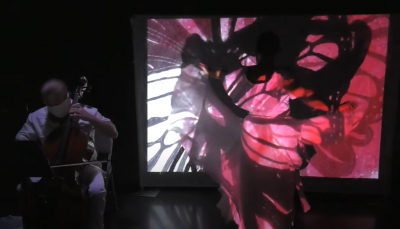By Savannah Galbert
For 14 seasons, the Guerilla Opera in Boston has used innovative music techniques to tell stories and engage its audience.

This year, however, the ensemble has been forced to think outside the box and perform opera in a manner that is both safe and engaging. The Guerillas of Boston have worked to develop their digital programming and are now live streaming their performances with the goal of hosting in-person performances in the near future.
The opera has provided online viewings of their performances since 2013, but COVID-19 restrictions have forced it to discover new approaches to sharing performances with the world.
Aliana de la Guardia, the co-artistic director of Guerilla, said the opera has several plans for its 14th season regardless of challenges posed by the pandemic.
“Our main objective is artistic creativity and transformation, to think outside of the box of traditional opera, which was always our mission,” de la Guardia said, “but now, to even go a little step further and to think about what is theatricality in music and how far does it really go.”
Guerilla Opera has transformed the typical form of opera through new “COVID Experiments,” smaller projects that Guerilla calls its “special ops.” These works, which began in April, will be accessible via a smaller team of experienced actors at Guerilla Underground. So far, these experiments include Songs of Innocence, A Waltzer in the House and Papillon.
The Underground will launch Nov. 13 and run until Dec. 13. Viewers will have the opportunity to watch the exhibition “Dreamwalker,” which contains “Papillon,” one of the COVID Experiments.
Deniz Khateri is an Iranian artist who collaborated with Guerilla Opera on several projects, including “Rumplestiltskin,” a shadow-puppet show she directed. Formally trained as an actress, Khateri has done work directing and writing, but recently got involved with shadow puppetry.
Khateri said her time with Guerilla has been artistically rewarding and liberating, as she is able to have free rein to implement her own vision in the productions.
“I experiment with different mediums and all of my stage works were always with that approach toward performance,” Khateri said. “When we worked together the first time, I felt like I was free to experiment with whatever I thought that fit the piece, and they were very open about it. They were willing to try everything.”
In such a time of experimentation and flexibility, Guerilla has developed another way in which opera lovers can view performances: watch parties. Watch parties are pay-what-you-can virtual events in which attendees can view previous Guerilla productions while simultaneously learning quarantine recipes and engaging in trivia.
Professional development opportunities are also being prepared for those who wish to expand their role in the creative community. Available through the Guerilla Lab and variable in price, these classes teach topics such as libretto writing, production design and performance movement.
De la Guardia said the opera has provided successful educational programs in the past that have attracted individuals from around the country. She said the opera now hopes that, with its workshops going digital, the group can reach more people and bring greater awareness to the industry.
“It’s really important to us to get different and diverse voices into the opera industry,” de la Guardia said. “What we try to create in the educational programs are really inclusive environments that are open to all different kinds of stories and that help people, in the best way that we know how, to utilize their voice and to try and get their voice heard in the industry.”
Though its 14th season has not aligned exactly with their original plans, the Guerilla Opera has redefined opera as a modern viewing experience — one in which audience members can have an affordable opportunity to view and learn more about opera from the safety of their own homes.
The live-events industry has experienced various difficulties in the past months and now relies heavily on innovative techniques, adaptable performers and loyal consumers to continue providing successful, authentic entertainment.
Kendall Richards, a freshman in the College of Communication and avid thespian, said the theater community is hurting without in-person audiences, but that she is looking forward to seeing actors return to the stage once they’re able to do so.
“I feel, during the pandemic, the theater industry is at a turning point,” Richards said. “Even though we can’t enjoy our favorite shows like we used to, it will just be great to see them again once it’s safe.”

















































































































